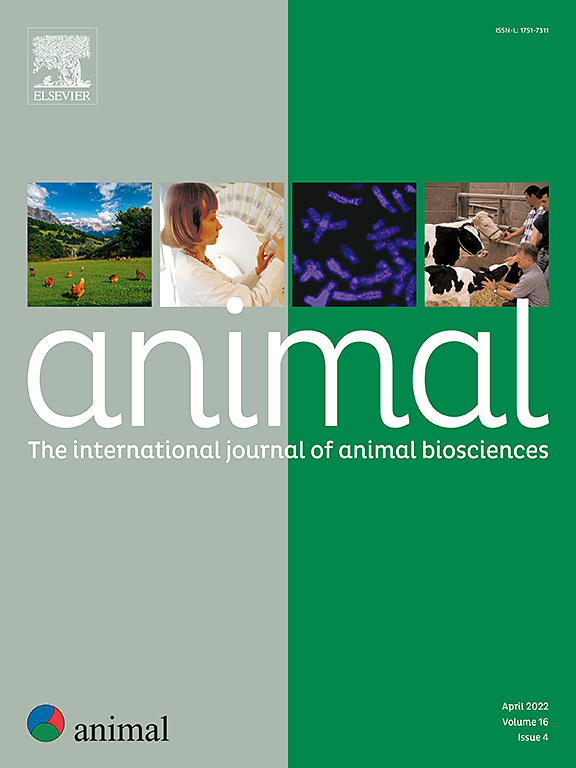Implementation of the European directive on pig welfare: a comparative study of four member states
IF 4.2
2区 农林科学
Q1 AGRICULTURE, DAIRY & ANIMAL SCIENCE
引用次数: 0
Abstract
Farm animal welfare is an important component of the transition towards sustainable food systems. The success of the recent European Citizen’s Initiative “End the Cage Age” has shown that animal welfare is also a public concern. Yet, despite the existence of European Union (EU) legislation on farm animal welfare, little is known about how member states implement these laws, leading to potential enforcement gaps. This raises the question of how member states customise EU animal welfare policies and what drives these variations. Our study investigates this issue by analysing the implementation of a European pig welfare directive in four member states: Denmark, France, Germany, and Spain. Drawing on the concept of customisation, we assess differences in the density and restrictiveness of national regulations compared to EU standards and explore potential drivers, such as public opinion and political party positions. Our findings reveal significant variation, with Denmark and Germany exceeding EU standards through stricter and denser regulations, while France and Spain adhere more closely to the minimum requirements. These differences align with varying public and political priorities at the national level. The results highlight the critical role of national contexts in shaping the implementation of EU policies and provide insights for designing more effective animal welfare legislation. Our study underscores the need for a deeper understanding of the interplay between public opinion, political dynamics, and regulatory frameworks to enhance the welfare of farmed animals across the EU.
欧洲猪福利指令的实施:四个成员国的比较研究
农场动物福利是向可持续粮食系统过渡的重要组成部分。最近欧洲公民倡议“结束笼子时代”的成功表明,动物福利也是一个公众关注的问题。然而,尽管欧盟(EU)有关于农场动物福利的立法,但对成员国如何实施这些法律知之甚少,这导致了潜在的执法空白。这就提出了成员国如何定制欧盟动物福利政策的问题,以及是什么导致了这些变化。我们的研究通过分析丹麦、法国、德国和西班牙四个成员国实施欧洲猪福利指令的情况来调查这一问题。根据定制的概念,我们评估了与欧盟标准相比,各国法规的密度和限制性的差异,并探讨了潜在的驱动因素,如公众舆论和政党立场。我们的研究结果显示了显著的差异,丹麦和德国通过更严格、更密集的法规超过了欧盟标准,而法国和西班牙则更严格地遵守最低要求。这些差异与国家一级不同的公共和政治优先事项相一致。研究结果强调了国家背景在制定欧盟政策实施中的关键作用,并为设计更有效的动物福利立法提供了见解。我们的研究强调需要更深入地了解公众舆论、政治动态和监管框架之间的相互作用,以提高整个欧盟的养殖动物福利。
本文章由计算机程序翻译,如有差异,请以英文原文为准。
求助全文
约1分钟内获得全文
求助全文
来源期刊

Animal
农林科学-奶制品与动物科学
CiteScore
7.50
自引率
2.80%
发文量
246
审稿时长
3 months
期刊介绍:
Editorial board
animal attracts the best research in animal biology and animal systems from across the spectrum of the agricultural, biomedical, and environmental sciences. It is the central element in an exciting collaboration between the British Society of Animal Science (BSAS), Institut National de la Recherche Agronomique (INRA) and the European Federation of Animal Science (EAAP) and represents a merging of three scientific journals: Animal Science; Animal Research; Reproduction, Nutrition, Development. animal publishes original cutting-edge research, ''hot'' topics and horizon-scanning reviews on animal-related aspects of the life sciences at the molecular, cellular, organ, whole animal and production system levels. The main subject areas include: breeding and genetics; nutrition; physiology and functional biology of systems; behaviour, health and welfare; farming systems, environmental impact and climate change; product quality, human health and well-being. Animal models and papers dealing with the integration of research between these topics and their impact on the environment and people are particularly welcome.
 求助内容:
求助内容: 应助结果提醒方式:
应助结果提醒方式:


